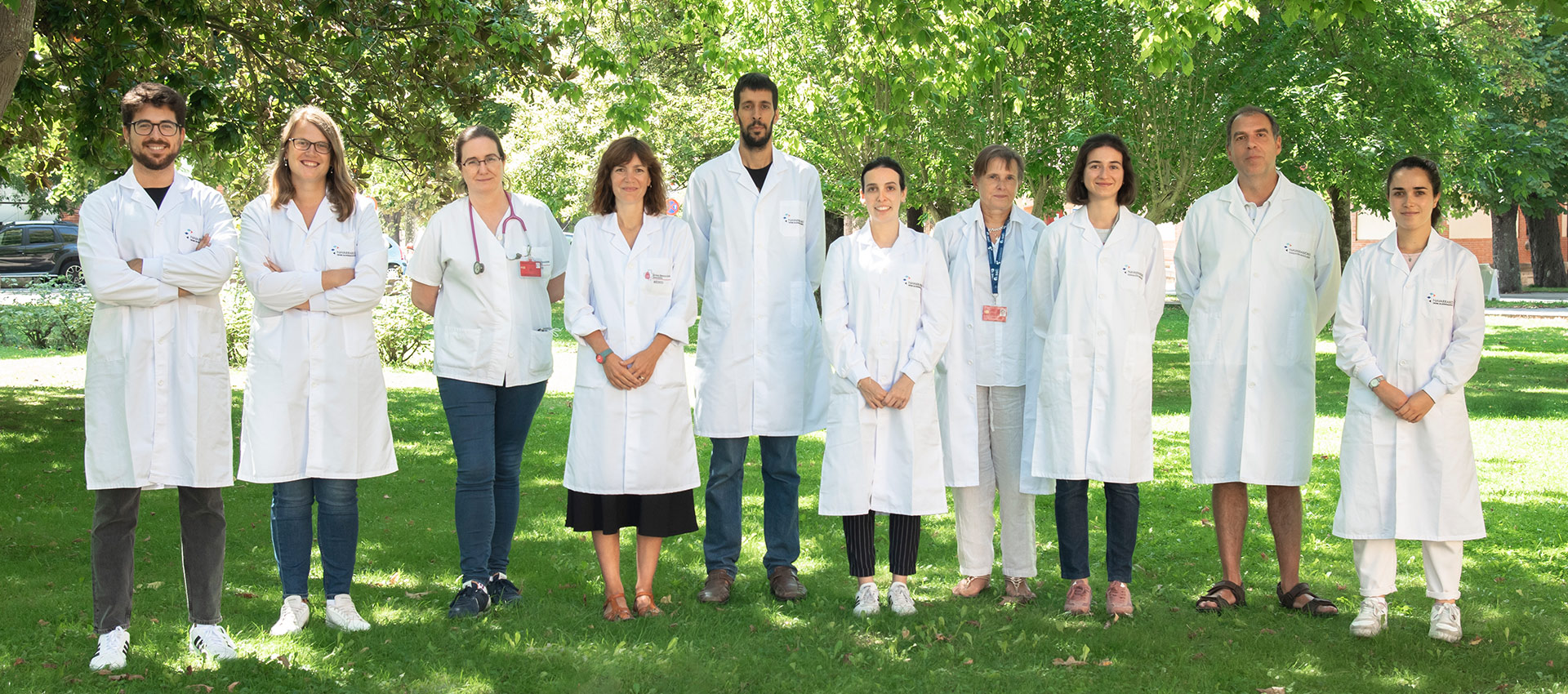
Immunological profile against SARS-CoV-2 infection and Bnt162b2 mRNA vaccine characterised in patients with solid tumours
The Oncoimmunology Unit of Navarrabiomed, headed by Drs. Grazyna Kochan and David Escors in collaboration with the Oncobiona Unit, headed by Drs Ruth Vera and María Alsina, have characterized the memory T-cell responses against SARS in solid-tumour patients with previous SARS-CoV-2 infection followed by mRNA vaccination.
The study demonstrates that patients with solid tumours vaccinated with Bnt162b2 exhibit proficient antibody, T-cell and myeloid responses against the S1 protein of SARS-CoV-2 virus. Furthermore, patients with previous COVID-19 generate a potent memory T-cell response against S1 and M viral proteins. This indicates that the incorporation of the M protein in vaccine formulations could increase the efficacy of vaccines in cancer patients.
In addition, vaccination followed by a previous infection was also reported to markedly increase the immune response to the S1 protein. The study also highlight the exacerbated Th17 response after infection and vaccination in solid tumour patients, who already have baseline inflammation due to the disease. This suggests the requirement of further research in novel mRNA vaccine adjuvants to avoid this inflammatory response.
These results are part of the thesis by Miriam Echaide, PhD student of the Oncoimmunology Unit, and are included in the scientific production of the Navarra Health Research Institute (IdiSNA), a public-private group for the promotion of biomedical research in Navarra, of which Navarrabiomed is a member.
The research is funded by the European Union's Horizon 2020 Science and Innovation programme. The Oncoimmunology group has the additional support of other institutions such as the Spanish Association Against Cancer (AECC), the Carlos III Health Institute, the Department of Health and the Department of University, Innovation and Digital Transformation of the Government of Navarra and the Ministry of Science and Innovation.
